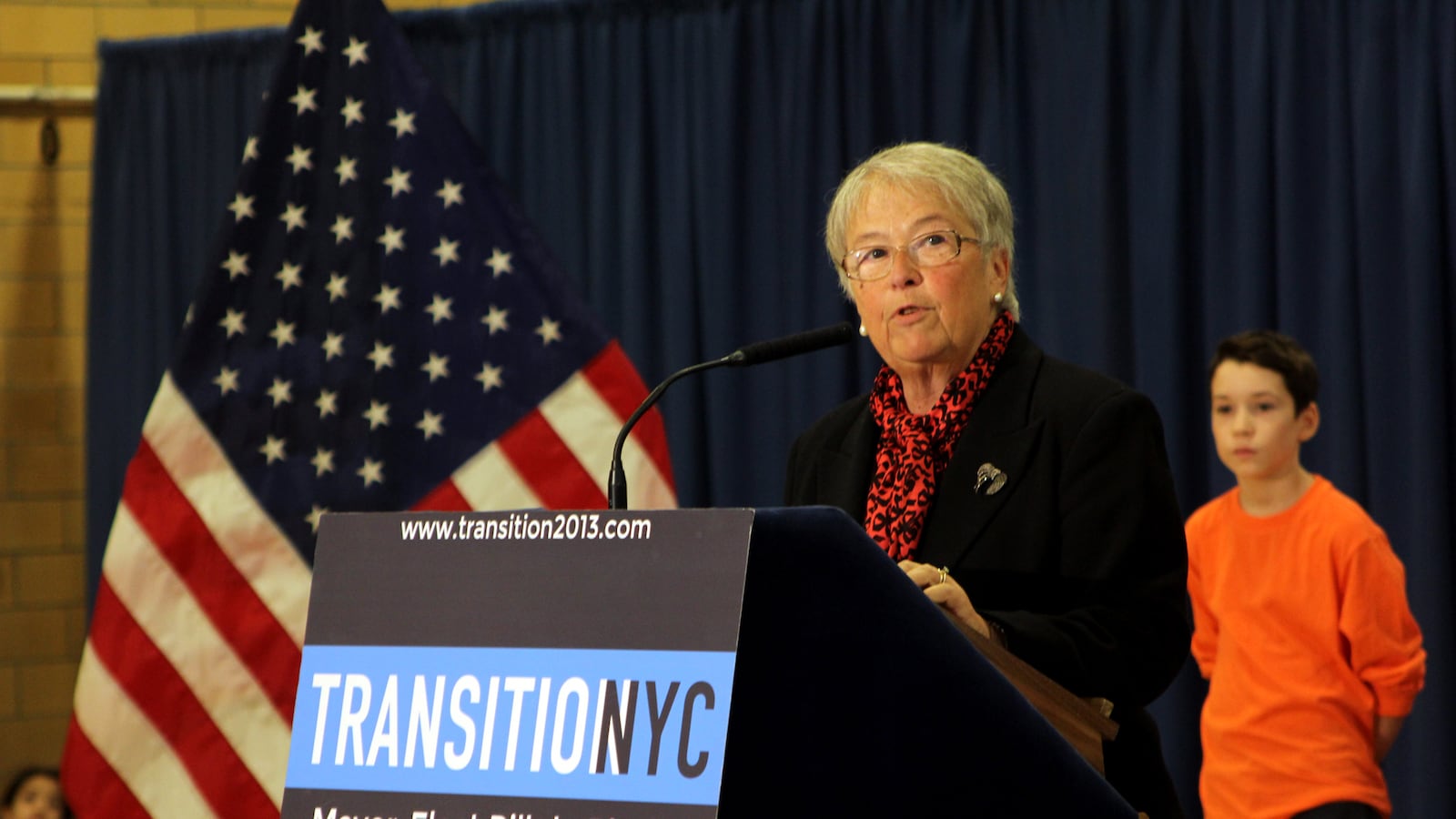Carmen Fariña, the longtime educator whom Mayor-elect Bill de Blasio named as chancellor Monday, pledged to steer the city’s school system in a new direction by turning parents into “real partners” and doing more to support teachers.
A teacher, principal and administrator who entered kindergarten unable to speak fluent English, Fariña promised to pursue a “progressive agenda” that would reduce standardized-test preparation in classrooms while restoring the arts and sciences to the curriculum.
Fariña, 70, who retired as deputy chancellor in 2006 after a four-decade career in the school system, also batted away suggestions that she had accepted the appointment on a temporary basis.
“My commitment is total,” she said, adding, “They tell me 70 is the new 40.” She said she had sacrificed “sunny days in Florida,” where her husband will reside, in order to take charge of the nation’s largest school system.
De Blasio explained the lengthy vetting process that led to Monday’s announcement by emphasizing the importance of the post and saying that he had considered candidates from across the country, but “kept coming back” to Fariña because of their shared views on education and her vast experience.
“Literally no one knows our school system better,” de Blasio said during the press conference inside Brooklyn’s M.S. 51, the well-regarded school his children attended inside the district that Fariña led as superintendent. He said her appointment ended a “trend” in which the previous four schools chancellors were non-educators who required state waivers to land the job.
Flanked by children whose stamina flagged during the hourlong event, Fariña declined to say how she will attack some of the most contentious education quandaries facing the new administration, such as whether to charge rent to charter schools in public buildings or how to forge a new contract with the city’s teachers, who have gone four years without one.
Instead, she vowed to “review everything” while making some immediate adjustments, such as creating an easier process for parents to interact with the education department.
“Day one, we’re going to figure out where you go when you’re a parent and you have an issue,” Fariña said.
Fariña cited her experience as a first-generation Spanish immigrant and English language learner who became the first in her family to graduate from college as the source of many of her core beliefs about education.
Parent-teacher conferences that were “excruciatingly painful” for her Spanish-speaking mother and a teacher who made a young Fariña feel “invisible” by mispronouncing her name convinced her that schools must embrace families of all backgrounds, she said.
“A promise I make to every parent in New York City is that your child will be spoken to by the name that you gave her, not by the name someone else gives her,” Fariña said. At one point in her remarks, she switched to her native Spanish to talk about English language learners.
She said her father — a maintenance worker who Fariña said arrived in the United States with only a third-grade education — advised her to analyze more than memorize in school, which shaped her views about education and testing.
“It’s always been something I’ve believed in — we learn facts maybe to take tests, but we learn thinking to get on in life,” Fariña said.
Fariña taught at Brooklyn’s P.S. 29 for 22 years before becoming principal of P.S. 6 in Manhattan, which climbed to the system’s top tier of schools during her tenure. She was later picked to become superintendent in Brooklyn’s District 15, then was made a regional superintendent and finally deputy chancellor for teaching and learning in the Bloomberg administration.
De Blasio said Fariña’s decision to leave that role after two years was driven by her policy disagreements with the previous mayor and his then-Chancellor, Joel Klein.
“Carmen came to the feeling that the needs of school communities were being ignored,” de Blasio said. He added, “She didn’t want to continue policies she didn’t believe in.”
Fariña added that family considerations had factored into her decision and that she had subsequently stayed involved in education, even teaching demonstration lessons in classrooms as recently as last month.
De Blasio said he still needed to review a parent-led lawsuit meant to stop the Bloomberg administration’s plans to put more charter schools inside existing school buildings, but he would not allow any new co-location plans for now. He also announced that Ursulina Ramirez, an official on his transition team and a former childcare worker, would serve as Fariña’s chief of staff.
Laura Scott, the principal of P.S. 10 in District 15, said after the announcement that as superintendent Fariña had instructed principals to fully incorporate special-needs students into their schools, to promote collaboration among teachers, and to beef up their parent associations. Fariña also advised them to use “testing to inform instruction, as opposed to a way to penalize teachers.”
M.S. 51 Principal Lenore DiLeo-Berner said that she and other educators who had worked under Fariña consider her an ideal schools chief.
“It’s like a dream come true,” she said.

